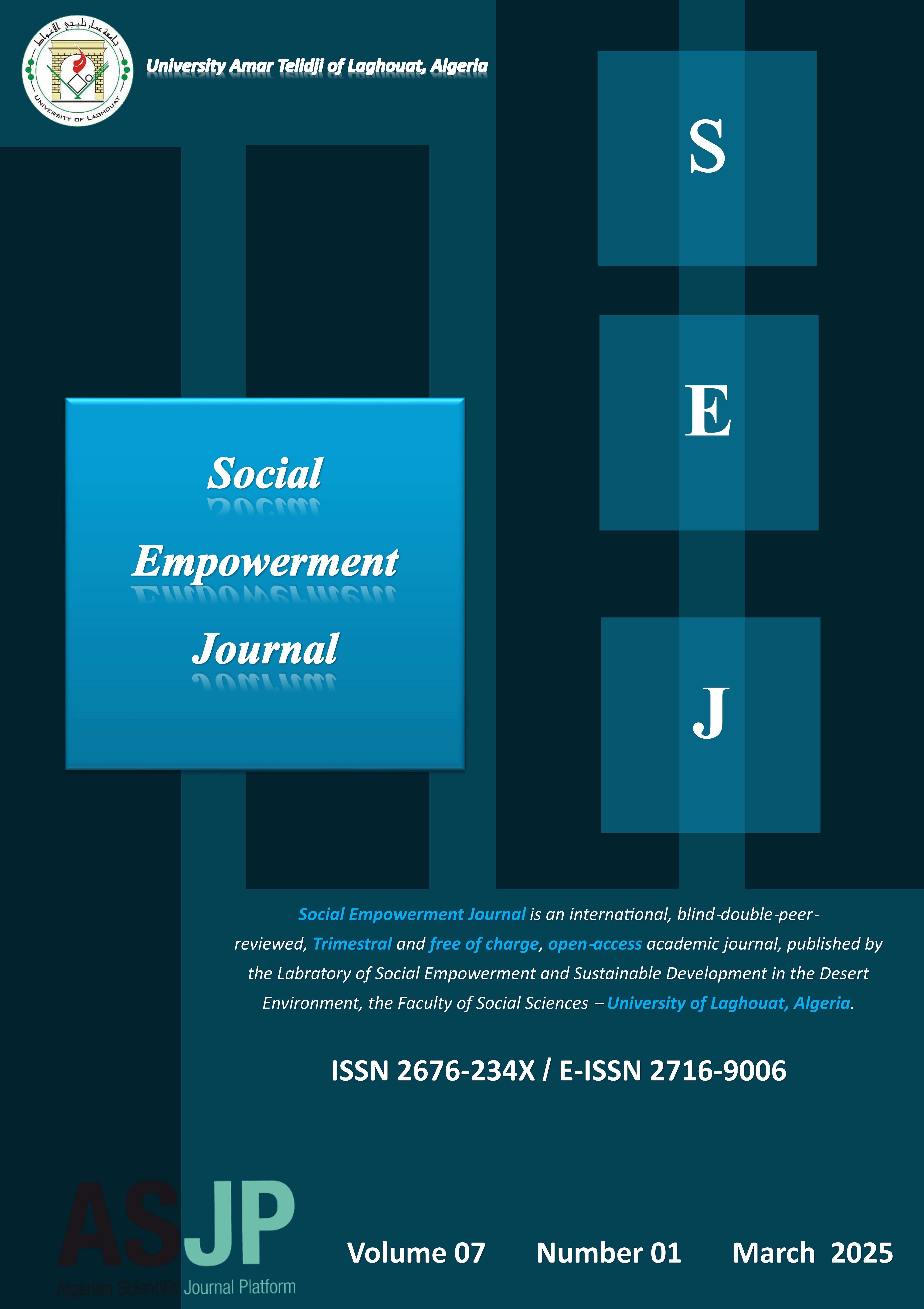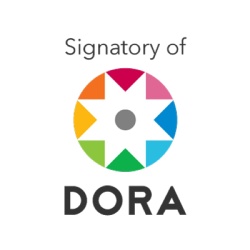نظريات الإعلام والاتّصال وخطابات الأفول
نظريات الإعلام والاتّصال وخطابات الأفول
الملخص
تتناول هذه الورقة البحثية الخطابات والرؤى التي تتنبأ بأفول النظرية، بما في ذلك نظريات الإعلام والاتصال، وظهور عصر ما بعد النظرية. من خلال تحليل هذه الخطابات، تستكشف الورقة السياقات التي تدعم فكرة تراجع النظريات، لاسيما تلك المتعلقة بالتكنولوجيات الرقمية والبيانات الضخمة. وتؤكد الورقة على أن هذه الخطابات غالباً ما تحمل طابعاً إيديولوجيا أكثر من كونه طابعا علميا. في الوقت نفسه، تشدد الورقة على ضرورة إعادة النظر في فلسفة البحث، والإطار المفاهيمي والمعرفي في مجالات الإعلام والاتصال والعلوم الاجتماعية بشكل عام، وتطوير مقاربات مبتكرة تتماشى مع التحولات السريعة في البيئة التكنولوجية والإعلامية المعاصرة.
التنزيلات
المراجع
Adorno, T. W. (2010). Who’s Afraid of the Ivory Tower? A Conversation with Theodor W. Adorno. In G. Richter (Eds.) Language Without Soil: Adorno and Late Philosophical Modernity (pp. 227-238). New York: Fordham University Press. https://tinyurl.com/2sxhx3fp
Anderson, C. (June 23, 2008). The End of Theory: The Data Deluge Makes the Scientific Method Obsolete. Wired. https://tinyurl.com/y5ax68z4
Debaise, D. (2012). Qu'est-ce qu'une subjectivité non-humaine ? L'héritage néo-monadologique de B. Latour. Archives de Philosophie, 75(4), 587-596. https://tinyurl.com/3x4jd9ap
De Grove, F., Boghe, K., & De Marez, L. (2020). (What) Can Journalism Studies Learn from Supervised Machine Learning? Journalism Studies, 21(7), 912–927. https://tinyurl.com/mrxwmvh4
Deleuze, G. (1968). Différence et repetition. Paris : Presses universitaires de France (PUF). https://tinyurl.com/y2ttmus3
Deleuze, G. & Guattari F. (2005). Qu’est-ce que la philosophie ?” Paris: les Éditions de Minuit. https://tinyurl.com/mr2k4wv6
Heidegger, M. (1977). The Question Concerning Technology and Other Essays. (W. Lovitt, Trans.). New York: Garland Publishing, INC. (Original work published 1961). https://tinyurl.com/3vn9azmr
Horkheimer, M. (1947). Eclipse of Reason. New York: Oxford University Press. https://tinyurl.com/mr2n9r3y
Jameson, F. (2009). Valences of the Dialectic. London: Verso. https://tinyurl.com/4rm7c34f
Masso, A., Männiste, M., & Siibak, A. (2020). ‘End of Theory’ in the Era of Big Data: Methodological Practices and Challenges in Social Media Studies. Acta Baltica Historiae et Philosophiae Scientiarum, 8(1), 33-61. http://tinyurl.com/y7uvk7ph
Morrison, M. & Morgan, M. S. (1999). Model as Mediating Instruments. In M. S Morgan & M. Morrison (Eds.) Models as Mediations. Perspectives on Natural and Social Science (pp. 10-37). Cambridge: Cambridge University Press. https://tinyurl.com/49854b58
Nicholls, T. & Culpepper, P. D. (2021). Computational identification of media frames: Strengths, weaknesses, and opportunities. Political Communication. 38(1–2), 159–181. https://tinyurl.com/yuya7fpd
Nowviskie, B. (2016). On the Origin of “Hack” and “Yack”. In M. K. Gold & L.F. Klein (Eds.) Debates in the Digital Humanities 2016 (pp. 66-70). Minnesota: University of Minnesota Press. https://tinyurl.com/rtejxsxr
Scheinfeldt, T. (2012). Sunset for Ideology, Sunrise for Methodology? In M. K. Gold (Eds.) Debates in the Digital Humanities (pp. 124-126). Minneapolis & London: University of Minnesota Press. https://tinyurl.com/yc3k73nu
Searle, J. R. (1987). Esprits, cerveaux et programmes (E. Duyckaerts Trans.). Quaderni, 1, 65-96. https://tinyurl.com/3nyvr5ec
Stiegler, B. (2015). La Société automatique. 1. L'Avenir du travail. Paris : Fayard. https://tinyurl.com/yvts9ncf
Swedberg, R. (Eds.). (2014). Theorizing in Social Science. The Context of Discovery. California: Stanford University Press. https://tinyurl.com/bdepkpcn
Waldherr, A., Geise, S., Mahrt, M., Katzenbach, C, & Nuernbergk, C. (2021). Toward a stronger theoretical grounding of computational communication science. Computational Communication Research, 3(2). 152–179. https://tinyurl.com/hpvdwzp7
Whitehead, A. N. (1978). Process and Reality. An Essay in Cosmology. New York: The Free Press. https://tinyurl.com/43jxwdbt
Vargoz, F. (2018). Y a‑t‑il une philosophie des médias ? Acta fabula, 19(9). https://tinyurl.com/2p9969wz
- Arabic references in English:
Aarabe, Mohammed. (2013). Philosophy and Competency-Based Teaching in Secondary and Private Education. The Arab Journal of Psychological Sciences, 39-40, 147-160. http://tinyurl.com/2s4cxtr4
Al-Ma’ani. (n.d.). Definition and Meaning of “Hypostasis” in Al-Ma’ani Comprehensive Dictionary. http://tinyurl.com/wtxea339
Al-Fawaz, Fawaz bin Hamad. (June 27, 2017). The End of Theory: Financial Crises and the Failure of Economics “1”. http://tinyurl.com/3kze3564
Anderson, Chris. (October 6, 2021). The End of Theory: The Data Deluge Makes the Scientific Method Obsolete (Translated by Nouf Al-Saeedi). Oman Newspaper. http://tinyurl.com/2mhdfzn9
Aït Nasser, Abdelhafid. (July 22, 2021). Intellectuals – Power – Truth: A Reading of Michel Foucault’s Article “The Government of Truth.” Anfas Net. http://tinyurl.com/mt4hpyv
Bottomore, Tom. (2004). The Frankfurt School (Translated by Saad Hajras). Tripoli (Libya): Ouya Publishing House. (Original work published in English in 1984). http://tinyurl.com/5n9be6ct
Deleuze, Gilles. (2009). Difference and Repetition (1st ed.) (Translated by Wafaa Shaaban). Beirut: Arab Organization for Translation. (Original work published in French in 1968).
Saeed, Jalaluddin. (2004). Dictionary of Philosophical Terms and References. Tunis: Dar Al-Janoub Publishing. https://shorturl.at/hxT45
Swedberg, Richard. (2017). Before Theory Comes Theorizing: How to Make Social Sciences More Engaging (Translated by Hamid Al-Hashimi). Omran, 5(20), 165-187. https://tinyurl.com/24kx67w7
Horkheimer, Max. (1990). Traditional and Critical Theory (Translated by Mustafa Al-Nawi). Marrakech: Ouyoun Al-Maqalat. (Original work published in German in 1937). https://shorturl.at/zB258

هذا العمل مرخص حسب الرخصة Creative Commons Attribution-NonCommercial 4.0 International License.









